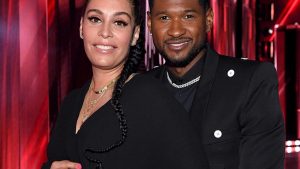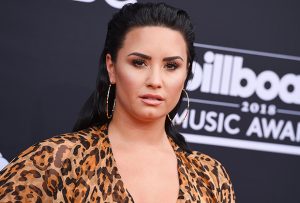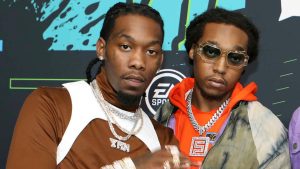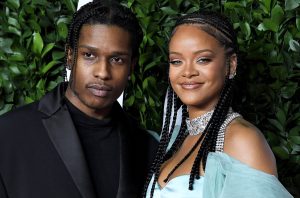Olivia Rodrigo has emerged as the front-runner for next year’s Grammy Awards, with nominations in all four of the main categories.
The 18-year-old is up for best album, best new artist, record of the year and song of the year, for Drivers License.
She faces competition from Billie Eilish and Lil Nas X in all of those categories, except best new artist.
Abba also received their first ever Grammy nomination in the record of the year category.
The Swedish band are recognized for their bittersweet comeback single, I Still Have Faith In You, which was released in September.
Taylor Swift also picks up her second consecutive album of the year nomination, for Evermore. She won earlier this year for that record’s companion album, Folklore.
British nominees are relatively thin on the ground, but Ed Sheeran’s Bad Habits is up for song of the year; while Arlo Parks and Glass Animals make the shortlist for best new artist.
Jazz keyboardist Jon Batiste leads the nominations, with 11 in total – recognising both his solo album We Are and the soundtrack to the Pixar film, Soul.
Justin Bieber, Doja Cat and H.E.R. followed with eight nominations apiece. Billie Eilish and Olivia Rodrigo were close behind with seven.
Meanwhile, Korean pop sensation BTS missed out on the main categories, receiving a single nomination for pop duo/group performance.
The group’s monster hit Butter, which spent 10 weeks at number one in the US, is nominated alongside Tony Bennett and Lady Gaga’s I Get a Kick Out of You, Justin Bieber’s Lonely, Coldplay’s Higher Power and Doja Cat’s Kiss Me More.
The nominees were announced at Grammy Museum in Los Angeles on Tuesday morning, with help from Billie Eilish, H.E.R. and BTS themselves.
With almost 22,000 songs and albums submitted for consideration, the shortlists in the main categories were expanded from eight to 10 nominees.
“We’re living in a time of extraordinary growth in music,” explained Recording Academy CEO Harvey Mason, Jr. “Over 60,000 songs a day are being released. With so much more music available. There’s a lot more excellence to recognize and celebrate.”
The Grammys also made sweeping changes to their rules for 2022, after last year’s controversy over The Weeknd being shut out of the nominations.
Organizers subsequently scrapped dozens of anonymous committees that had the ability to overrule votes in 72 of the 86 categories.
Veiled in secrecy, the committees had been accused of vote-rigging, favouritism and racism. Several high profile artists including Drake, Frank Ocean and The Weeknd himself, boycotted recent ceremonies in protest.
This year, the nominees were all decided by rank-and-file voters. That seems to have boosted the chances of artists with broad appeal, such as Tony Bennett and Lady Gaga, whose duets album Love For Sale generated six nominations.
This year, the Grammys are actually recognizing a 13-month time period, from 1 September, 2020, to 30 September, 2021.
Even so, that rules out some of pop’s biggest new albums, including Adele’s 30, Ed Sheeran’s = and Abba’s Voyage.
Also absent is The Weeknd, who is refusing to participate in the Grammys after being snubbed last year. Ariana Grande and Doja Cat also declined to submit their duets with the star for awards, in an apparent show of solidarity. But Kanye West didn’t get the memo: His single Hurricane, which features The Weeknd and Lil Baby, made it onto the best melodic rap song shortlist.
Taylor Swift also withheld her re-recorded version of Fearless from consideration. The original, released in 2008, is itself an album of the year winner.
And Dua Lipa failed to submit her 4x-platinum chart hit Levitating, apparently to avoid recognizing featured rapper DaBaby after he made homophobic comments earlier this year.
Country star Morgan Wallen also failed to receive a nomination after being filmed using a racial slur earlier this year.
The singer, whose album Dangerous is the biggest-selling country record of 2021, was ruled ineligible at the Academy of Country Music Awards, but had been allowed to enter the Grammys, only for voters to pass him over in favour of acts like Chris Stapleton and Sturgill Simpson.
The Grammys are ostensibly decided by the 12,000 voting members of the Recording Academy.
But for decades they were overseen by a shadowy group of “secret committees”, who narrowed down the top 20 finalists in each category to the final shortlist of between five and eight nominees.
Those committees were accused of corruption and insider dealing, most notably by ousted Recording Academy CEO Deborah Dugan, who said votes had been overruled and artists promoted onto shortlists without merit (the Academy called her allegations “categorically false”).
It came to a head this time last year, when R&B singer The Weeknd was overlooked in the nominations list, despite his single Blinding Lights having become one of the best-selling songs of the century.
“The Grammys remain corrupt,” he tweeted in response. “You owe me, my fans, and the industry transparency.”
In April, the Grammys announced the committees would be scrapped; with regular voters getting to decide the shortlists in every category – including the “big four”: Song of the year, record of the year, best new artist and best album.
Even so, the awards have managed to stir up controversy, thanks to a separate group of committees: The steering committees, who decide which prizes artists are eligible for.
The Nashville screening committee decided that Star-Crossed, the latest record by country superstar (and 2018 album of the year winner) Kacey Musgraves was actually a pop album, not country.
Musgraves responded on Instagram with her middle fingers raised. “You can take the girl out of the country (genre), but you can’t take the country out of the girl,” she wrote.







